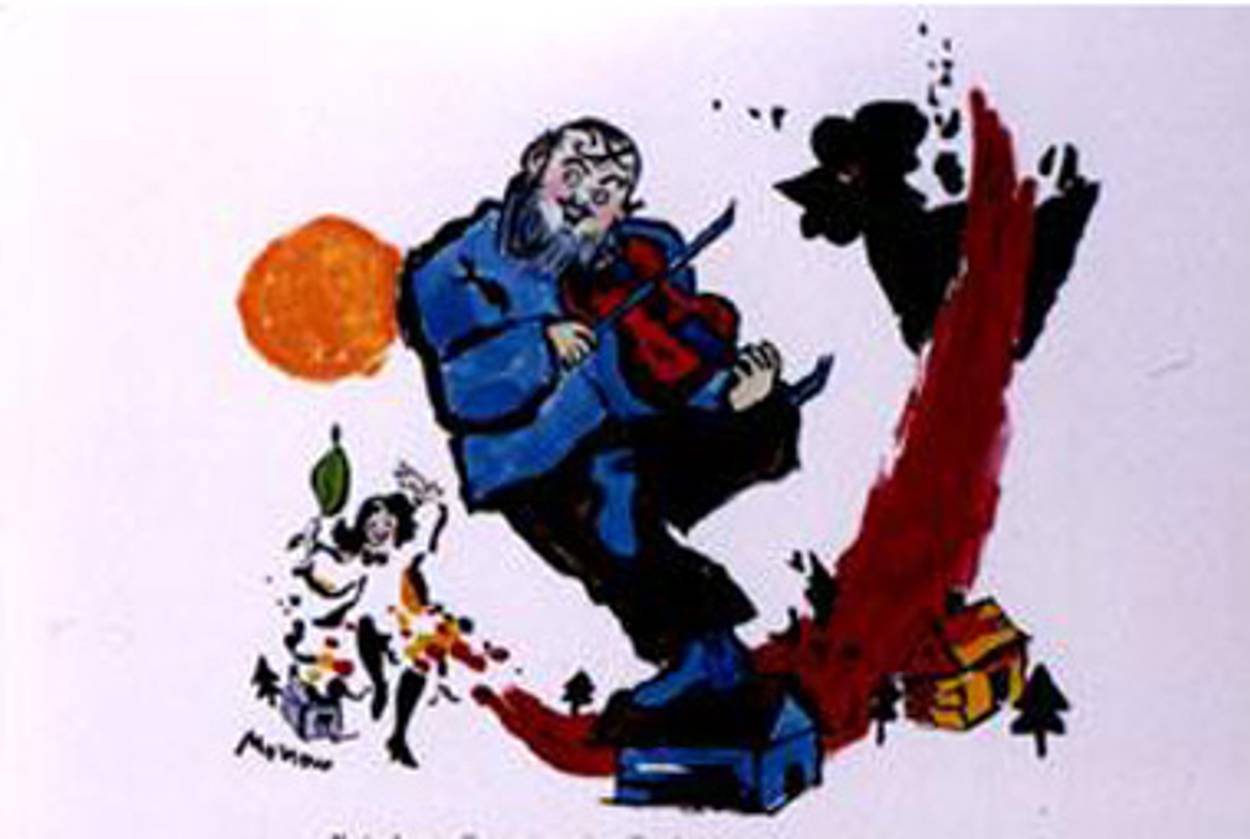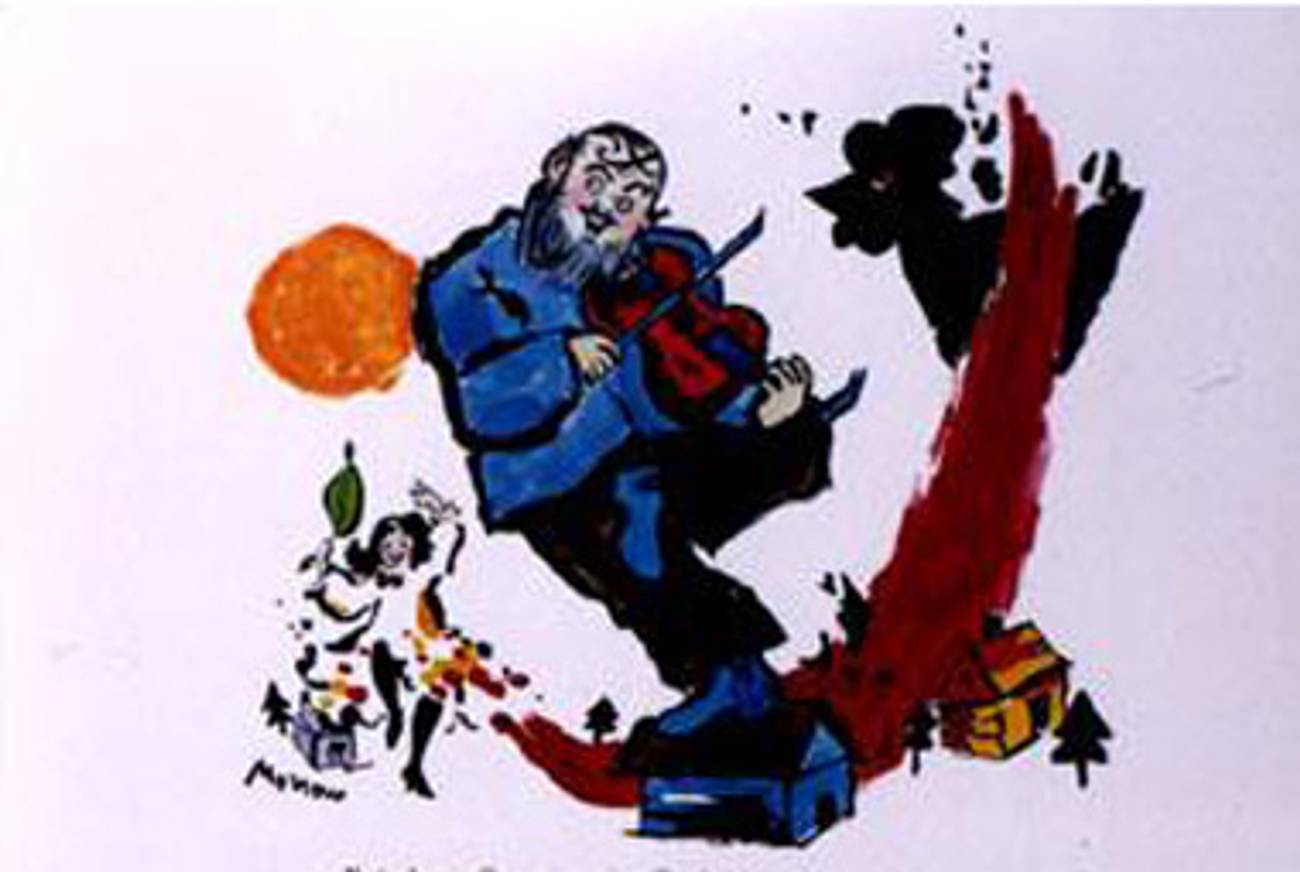Tradition, Tradition
New film explores the limited, limitless legacy of Sholem Aleichem




In the new documentary on the life and legacy of Sholem Aleichem, it is the Yiddish writer’s granddaughter who steals the show. Bel Kaufman, who recently celebrated her 100th birthday, provides crucial color to the otherwise scholarly discussion of Aleichem’s life and work in Joseph Dorman’s Sholem Aleichem: Laughing in the Darkness, which presents an in-depth look at the writer who, more than any other, masterminded the literary use of Yiddish and elevated what was seen as an outsider’s vernacular into a way to reach the wider Jewish community.
The eloquent and elegant Kaufman, clad in a bright purple blouse and matching scarf, breathes life into stories of her grandfather, who, alive for only her first five years of life, she remembers vividly. She tells of how Aleichem, born Sholem Rabinovich, was sent to relatives along with his eleven siblings when his father remarried after his wife (Aleichem’s mother) died. The children were retrieved, comically, one by one, only after their new stepmother had already moved in. Kaufman doesn’t contain her amusement with this event, which began a disgruntled relationship between stepmother and stepson that inspired the young Aleichem to write a glossary of the Yiddish curse words she would often direct towards him. When he showed his creation to his stepmother, she loved it. Her inclusion is a masterstroke by Dorman, who previously directed Scroll-favorite Arguing the World, another film that through the magic of cinema makes abstract ideas come to life on the screen.
Additional insight throughout the film comes from Hillel Halkin, author of Nextbook Press’s Yehuda Halevi. Halkin emphasizes that Aleichem’s stories about Tevye the milkman were based on a man he knew named Tevye but just as much influenced by his own experience as a parent, over the course of 20 years. In the stories, the same amount of time had elapsed as had in Aleichem’s own life. It was “a novel written in real time,” Halkin admiringly asserts.
Tevye, who is referred to in the documentary as the original do-it-yourself Jew and who apparently once had a musical written about him, is now seen as a precursor to later generations of Jewish parents who would confront various, significant generational shifts between them and their children. Just as Tevye resignedly accepts that his daughters, inadvertantly raised to be just as revolutionary as he was, have chosen lifestyles completely different from his own, Aleichem’s children grew up in a Russian-speaking household and didn’t know Yiddish. They read their father’s works in translation: A profound example of the chasms of changing eras that Aleichem so brilliantly explored and, ultimately, transcended.
Stephanie Butnick is chief strategy officer of Tablet Magazine, co-founder of Tablet Studios, and a host of the Unorthodox podcast.